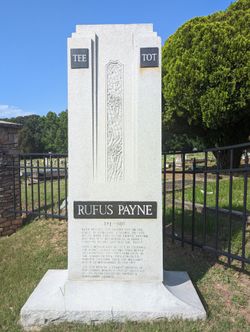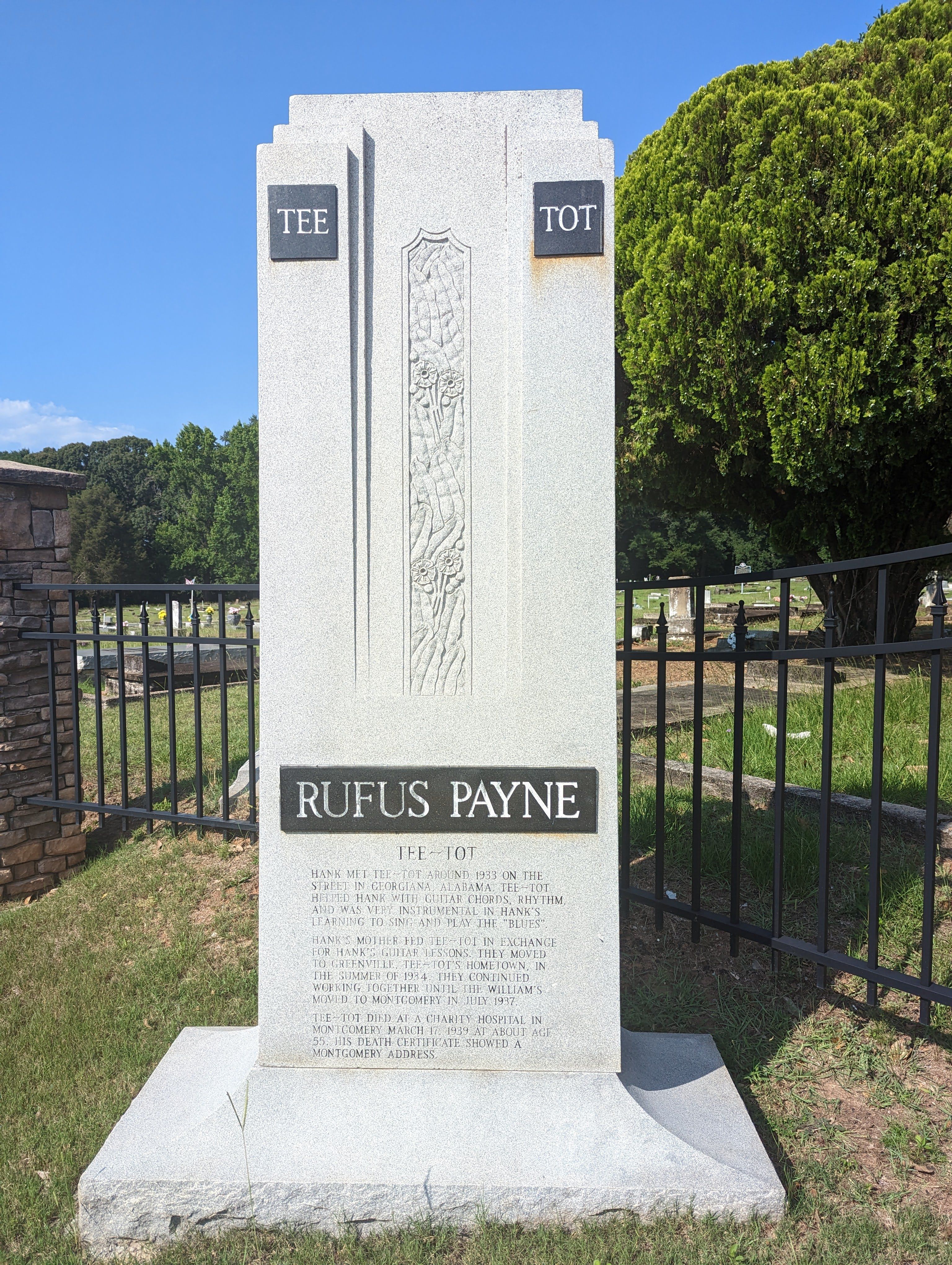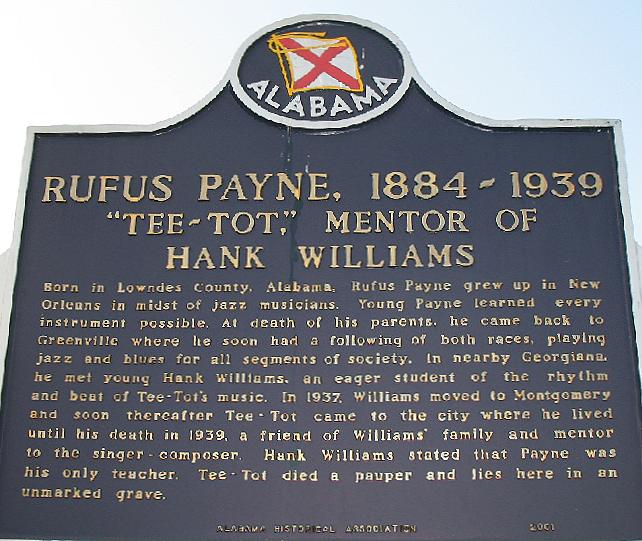Bio by: Linda Davis
Inscription
Hank met Tee-Tot around 1933 on the street in Georgiana, Alabama. Tee-Tot helped Hank with guitar chords, rhythm, and was very instrumental in Hank's learning to sing and play the "blues".
Hank's mother fed Tee-Tot in exchange for Hank's guitar lessons. They moved to Greenville, Tee-Tot's hometown, in the summer of 1934. They continued working until the William's moved to Montgomery in July 1937.
Tee-Tot died at a charity hospital in Montgomery March 17, 1939 at about age 55. His death certificate showed a Montgomery address.
"Tee-Tot," mentor of Hank Williams
Born in Lowndes County, Alabama, Rufus Payne grew up in New Orleans in midst of jazz musicians. Young Payne learned every instrument possible. At death of his parents, he came back to Greenville where he soon had a following of both races, playing jazz and blues for all segments of society. In nearby Georgiana he met young Hank Williams, an eager student of the rhythm and beat of Tee-Tot's music. In 1937, Williams moved to Montgomery and soon thereafter Tee-Tot came to the city where he lived until his death in 1939, a friend of Williams' family and mentor to the singer-composer. Hank Williams stated that Payne was his only teacher. Tee-Tot died a pauper and lies here in an unmarked grave.
Gravesite Details
Obelisk erected by Hank Williams Jr in Tee Tot's honor at the front of the cemetery. His actual burial location is unmarked in the back of the cemetery.
Family Members
Advertisement
See more Payne memorials in:
Explore more
Sponsored by Ancestry
Advertisement




